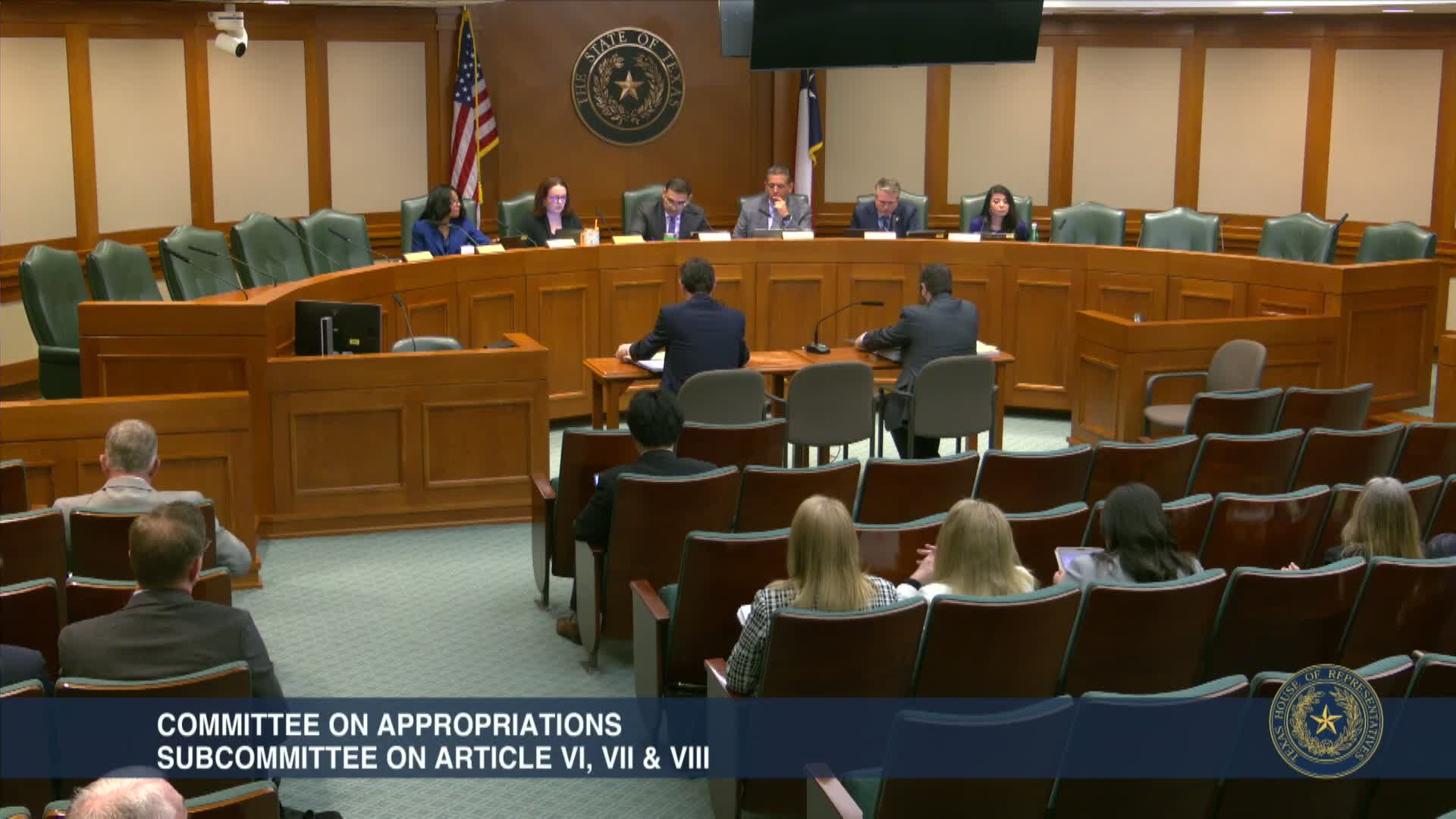Board of Nursing asks Legislature for staff, IT overhaul to address fraud, caseload surge
Get AI-powered insights, summaries, and transcripts
Subscribe
Summary
The Texas Board of Nursing requested funding for 15 investigators, an IT modernization project, and other program support after a surge in complaints and fraud tied to Operation Nightingale; agency says most requests can be covered by existing licensing revenue but asks for a one-time exemption for IT costs.
The Texas Board of Nursing told the House Appropriations Subcommittee on Articles VI, VII, & VIII on March 5 that it needs additional investigators, a new enforcement database and other resources to address a large increase in complaints and fraudulent licenses.
"We currently have over 566,000 licensees," Executive Director Kristen Benton said. "We received over 20,000 complaints last year." Benton said the board is requesting 15 additional full‑time equivalents, emphasizing investigators to reduce investigator caseloads that average about 180 cases per investigator.
The board cited Operation Nightingale — a national fraud scheme that produced thousands of suspect nursing credentials tied to certain out‑of‑state programs — as a factor that has added hundreds of complex reviews to licensing and enforcement work. Benton said the agency has already received FBI information naming additional programs, and staff must do detailed equivalency reviews and education‑program inquiries.
Board President Kathleen Shipp told the committee the agency has worked to keep fees low and return unspent funds to the state, but that the IT request likely exceeds current fee revenue limits. "To modernize agency systems without increasing fees, we request an exemption for the one‑time cost of this project," Shipp said, referring to a new enforcement database, a website revamp and an education‑program database.
The board said most of its non‑IT requests could be covered within current and projected licensing revenue without raising fees; the IT project was the exception. Hemant Macon, Director of Operations, confirmed the board returns about $1.5 million to the General Revenue Fund on average each year and that statutory rules require appropriations for the agency to retain and spend collected revenues.
Members pressed on timelines and details; Benton said cost estimates were refined after vendor outreach and that recent requests were reduced by roughly $878,000 following RFIs. The board asked the committee to weigh an exempted IT appropriation to avoid a temporary fee increase for LVNs, RNs and APRNs.
If funded as requested, the Board of Nursing said it plans to add investigators, modernize its complaint and enforcement systems, expand the Texas Center for Nursing Workforce Studies, and increase funding for the peer assistance program for nurses in recovery.
